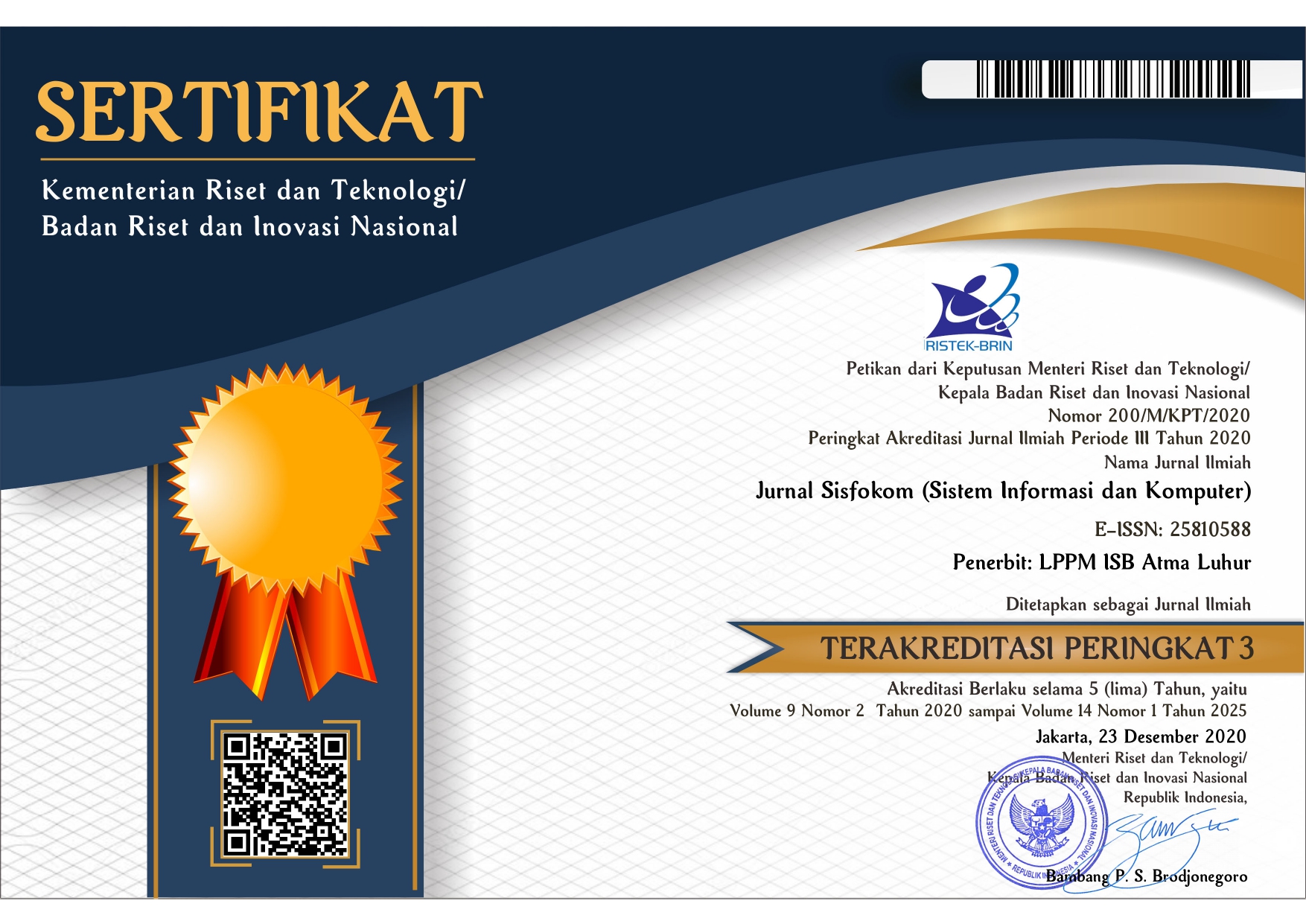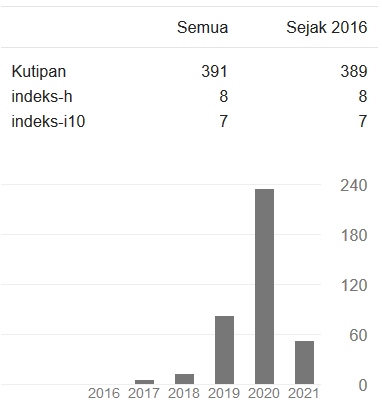Penilaian E-Servqual Terhadap Fasilitas E-Learning dengan Menggunakan Analisa Faktor
DOI:
https://doi.org/10.32736/sisfokom.v10i1.1097Keywords:
E-Servqual, Electronic Services, Electronic LearningAbstract
The Covid-19 pandemic that has occurred to date has made learning activities that are usually carried out face-to-face, switch to networks by utilizing e-learning media. The transfer of learning activities to e-learning media has advantages and disadvantages so that it needs to be evaluated. This evaluation is carried out to see to what extent the service quality of e-learning media is used in learning activities. One way to assess service quality is using the e-service quality method. The purpose of this study was to determine the quality of e-learning services. The service quality assessment factors used in this study are tangibility, reliability, responsiveness, assurance, and empathy. The research method used in this research is quantitative method and the data collection period starts from August 2020 to February 2021. 174 students was participated in this study, with the largest proportion being semester 7 students. The instrument used has good validity with a KMO value of more than 0, 5 and is reliable with a Cronbach's alpha value of more than 0.6. The final results of the study can be concluded that five factors measuring the quality of electronic services can be used to measure the quality of electronic learning services and the most influential factor is the assurance factor.References
L. Pham, Y. B. Limbu, T. K. Bui, H. T. Nguyen, and H. T. Pham, “Does e-learning service quality influence e-learning student satisfaction and loyalty? Evidence from Vietnam,” Int. J. Educ. Technol. High. Educ., vol. 16, no. 1, 2019, doi: 10.1186/s41239-019-0136-3.
S. Ivanaj, G. B. Nganmini, and A. Antoine, “Measuring e-learners’ perceptions of service quality,” J. Organ. End User Comput., vol. 31, no. 2, pp. 83–104, 2019, doi: 10.4018/JOEUC.2019040105.
X. Xie, “Factor analysis of e-learning services quality,” MATEC Web Conf., vol. 139, 2017, doi: 10.1051/matecconf/201713900112.
M. Ghosh, “Measuring electronic service quality in India using E-S-QUAL instrument,” Int. J. Qual. Reliab. Manag., vol. 35, no. 2, pp. 430–445, 2017.
Y. C. J. Wu, J. P. Shen, and C. L. Chang, “Electronic service quality of Facebook social commerce and collaborative learning,” Comput. Human Behav., vol. 51, pp. 1395–1402, 2015, doi: 10.1016/j.chb.2014.10.001.
A. A. Akbar and T. Djatmiko, “Pengaruh E-Service Quality Terhadap E-Customer Satisfaction Dan E-Customer Loyalty Pada Lazada.co.id,” e-Proceeding Manag., vol. 3, no. 1, pp. 142–150, 2016.
G. Bressolles and J. Nantel, “The measurement of electronic service quality: Improvements and application,” Int. J. E-bus. Res., vol. 4, no. 3, pp. 1–19, 2008, doi: 10.4018/jebr.2008070101.
J. Santos, “E-service quality: A model of virtual service quality dimensions,” Manag. Serv. Qual. An Int. J., vol. 13, no. 3, pp. 233–246, 2003, doi: 10.1108/09604520310476490.
Downloads
Additional Files
Published
Issue
Section
License
The copyright of the article that accepted for publication shall be assigned to Jurnal Sisfokom (Sistem Informasi dan Komputer) and LPPM ISB Atma Luhur as the publisher of the journal. Copyright includes the right to reproduce and deliver the article in all form and media, including reprints, photographs, microfilms, and any other similar reproductions, as well as translations.
Jurnal Sisfokom (Sistem Informasi dan Komputer), LPPM ISB Atma Luhur, and the Editors make every effort to ensure that no wrong or misleading data, opinions or statements be published in the journal. In any way, the contents of the articles and advertisements published in Jurnal Sisfokom (Sistem Informasi dan Komputer) are the sole and exclusive responsibility of their respective authors.
Jurnal Sisfokom (Sistem Informasi dan Komputer) has full publishing rights to the published articles. Authors are allowed to distribute articles that have been published by sharing the link or DOI of the article. Authors are allowed to use their articles for legal purposes deemed necessary without the written permission of the journal with the initial publication notification from the Jurnal Sisfokom (Sistem Informasi dan Komputer).
The Copyright Transfer Form can be downloaded [Copyright Transfer Form Jurnal Sisfokom (Sistem Informasi dan Komputer).
This agreement is to be signed by at least one of the authors who have obtained the assent of the co-author(s). After submission of this agreement signed by the corresponding author, changes of authorship or in the order of the authors listed will not be accepted. The copyright form should be signed originally, and send it to the Editorial in the form of scanned document to sisfokom@atmaluhur.ac.id.






